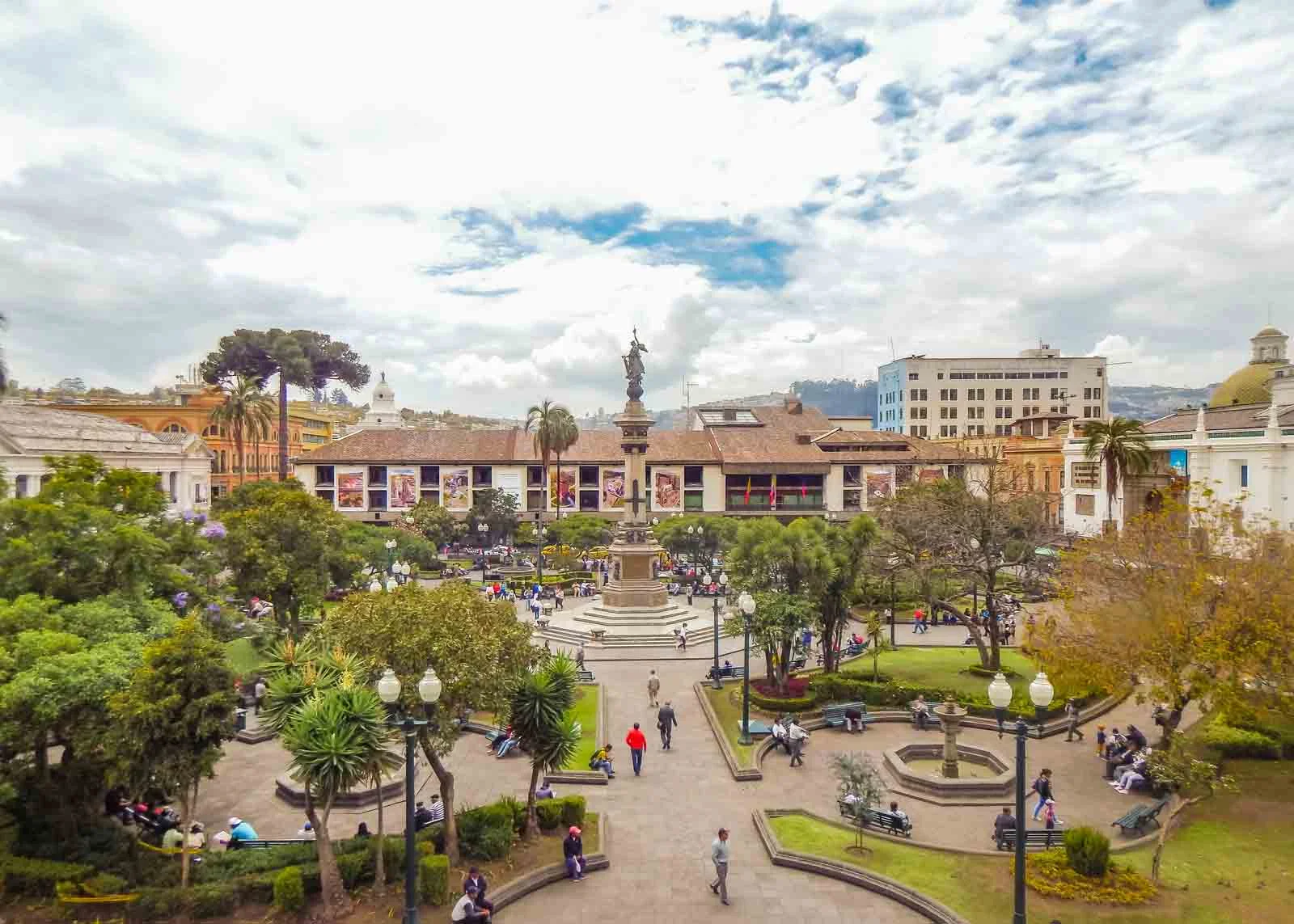
Five of Quito's emblematic World Heritage Sites | Travel Blog
On September 8, 1978, Quito was declared by the United Nations Educational, Scientific and Cultural Organization, Unesco, the first Cultural Heritage of Humanity for having one of the highest densities of historical centers in Latin America. There are 304 hectares of surface that occupies the historic center of the capital, where there are 32 museums, 24 churches, 6 chapels, 7 convents, 6 monasteries, 13 squares and other places of interest that keep history, traditions and culture.
Table of content
We invite you to know five unmissable places in our historical center:
1. Convent of San Francisco
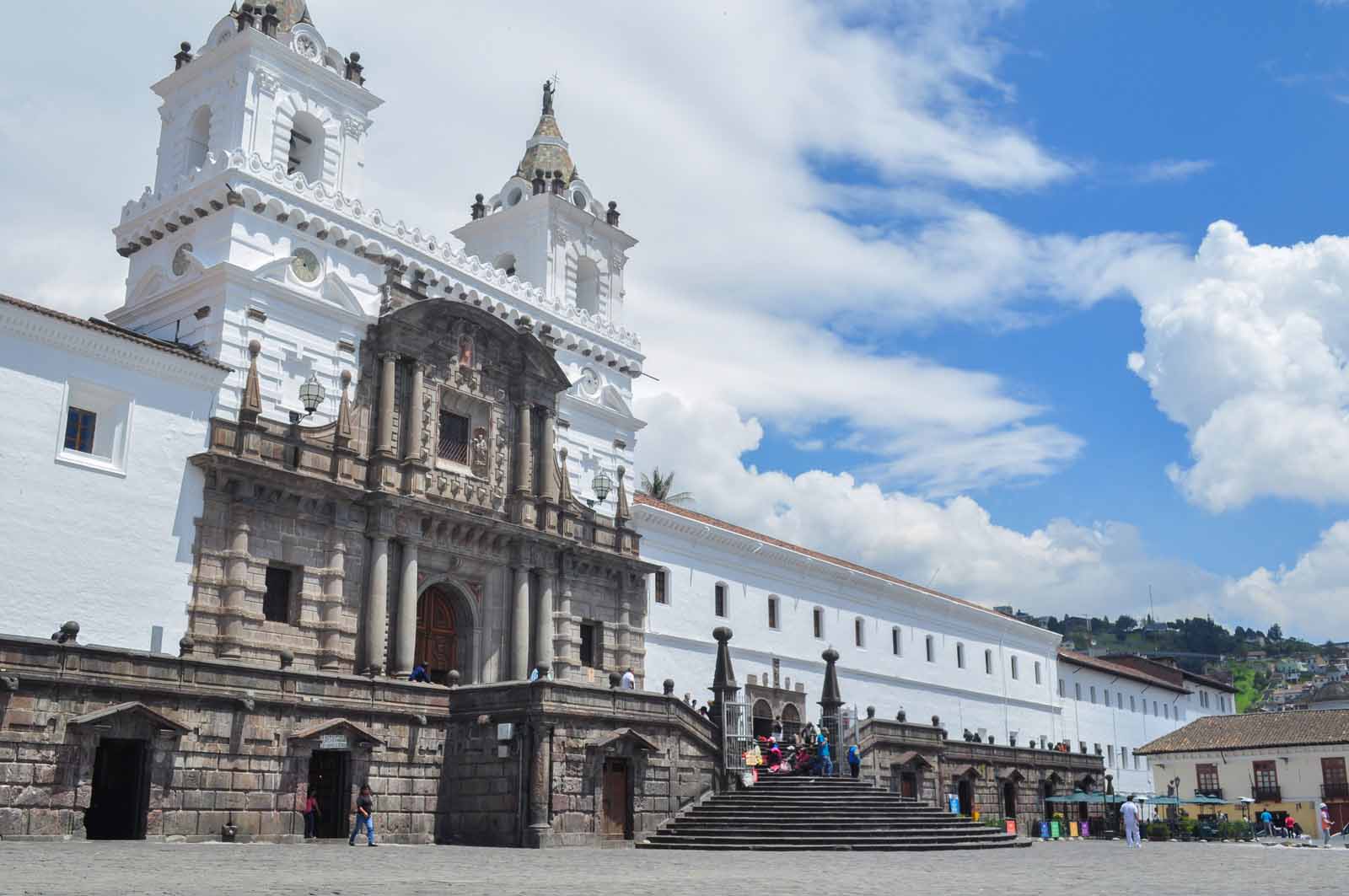
It is the first Franciscan temple in the Royal Court of Quito and holds the privilege of being the largest architectural complex within the historic centers of all America, so it is known as the 'Escorial of the New World'.
On its three and a half hectares of surface, thirteen cloisters, three churches, and a great Atrium have been built, totaling approximately forty thousand square meters of construction. Inside the church there are more than 3,500 works of colonial art, of multiple artistic manifestations and varied techniques, especially those corresponding to the Quito School of art, which was born precisely in this place.
2. Church of La Compañía de Jesús
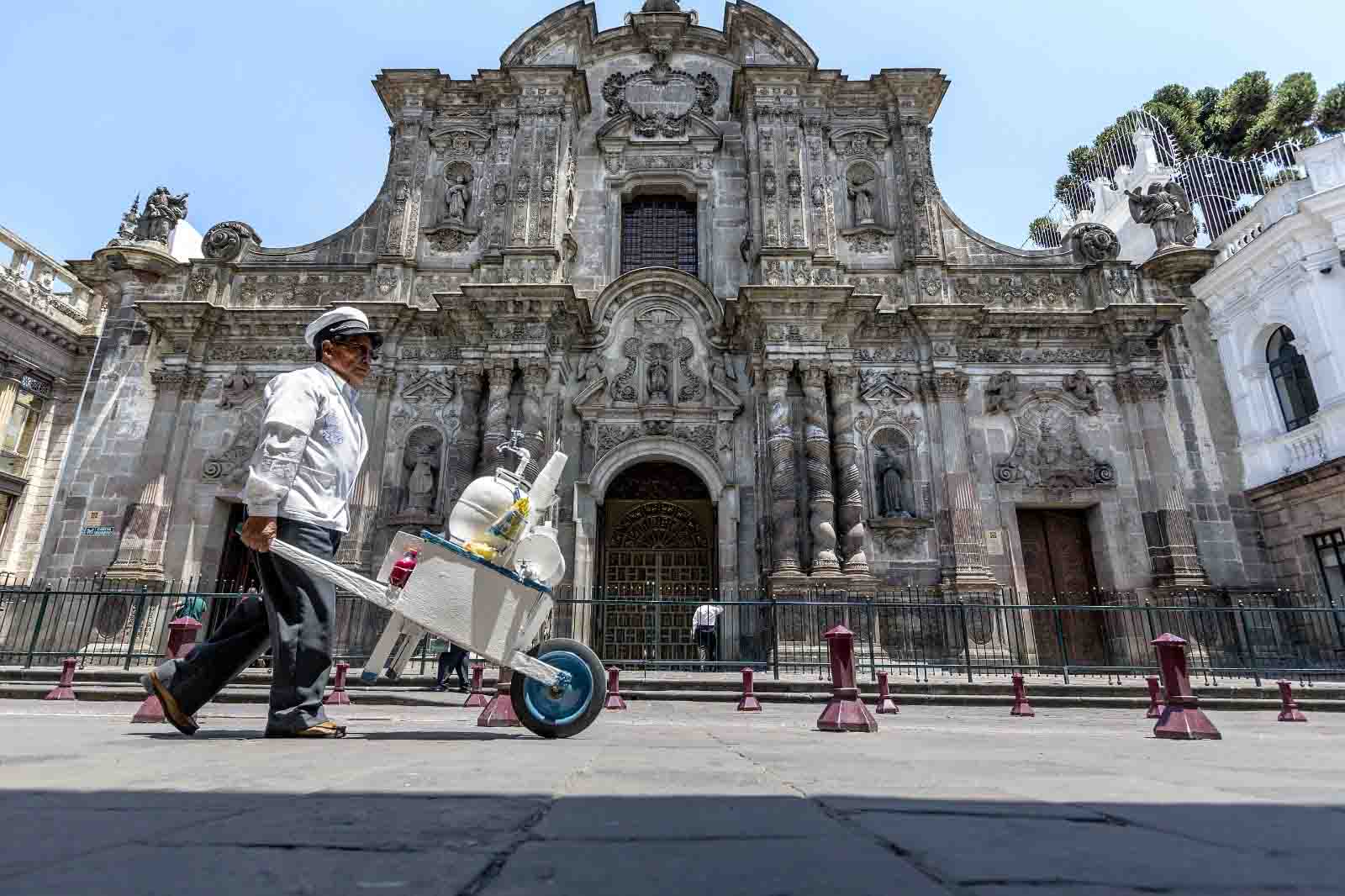
It is one of the most important temples of baroque architecture in the American continent and the world due to its facade, carved entirely in volcanic stone. The construction of this temple took 160 years so four architectural styles can be distinguished: Mudejar or Moorish, Churrigueresque, neoclassical and, the most dominant, baroque.
The inner part of the church is almost entirely covered with gold leaf, making it one of the major tourist attractions of the city and a priceless heritage, both artistically and economically.
3. The Plaza Grande
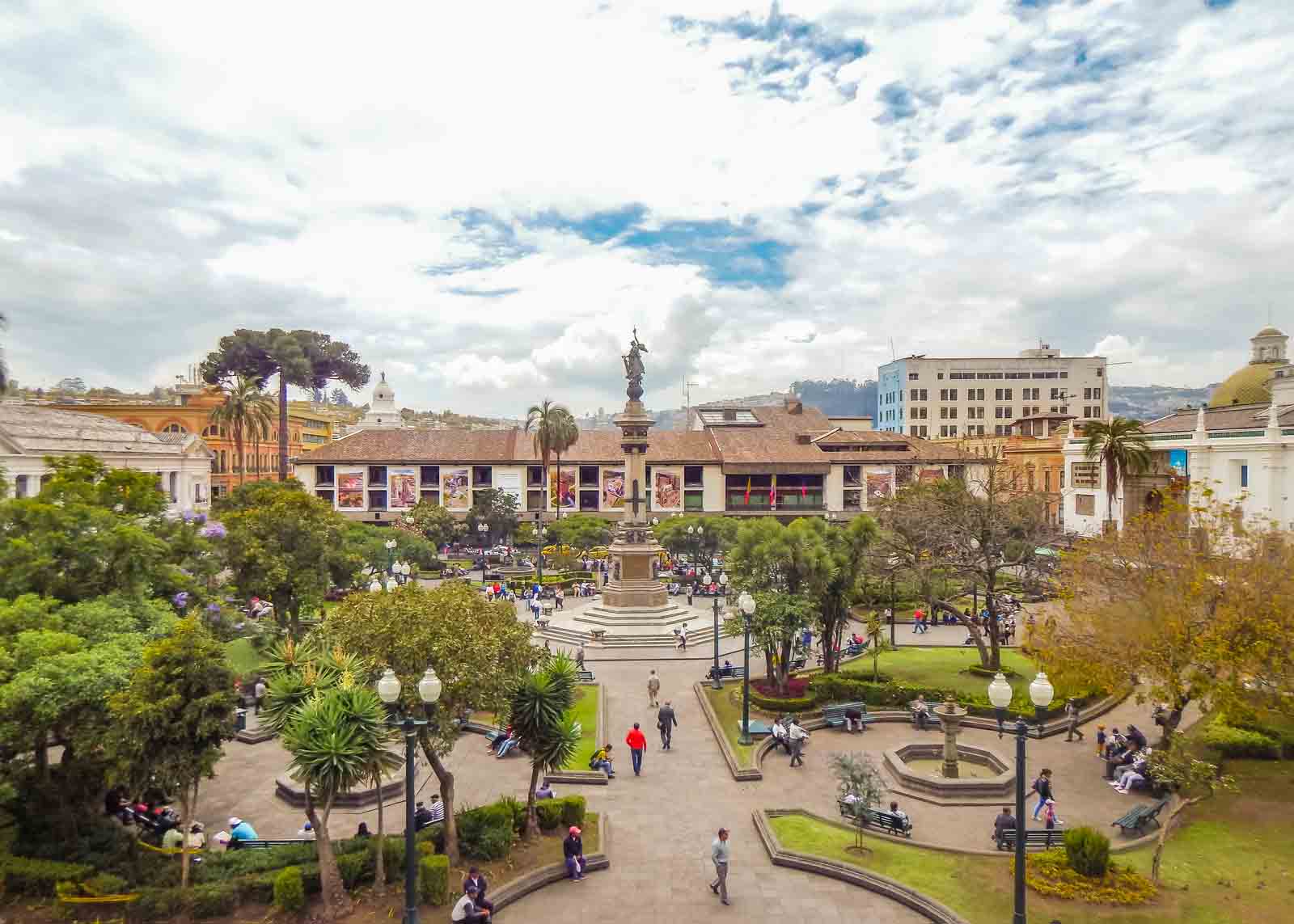
Also known as Plaza de la Independencia, it is the main square of the city. It represents the center of the colonial center and around it are buildings that represent important state institutions: to the north, the Archbishop's Palace; to the south, the imposing Metropolitan Cathedral; to the east, the Carondelet Palace, seat of the executive function; and to the west, the Municipal Palace, seat of the decentralized autonomous government of Quito.
The square has an approximate area of 8,100 m², each of its sides measures approximately 90 linear meters and in the center is the Monument to Independence, in honor of the heroes of the independence of August 10, 1809.
4. Basilica of the National Vow
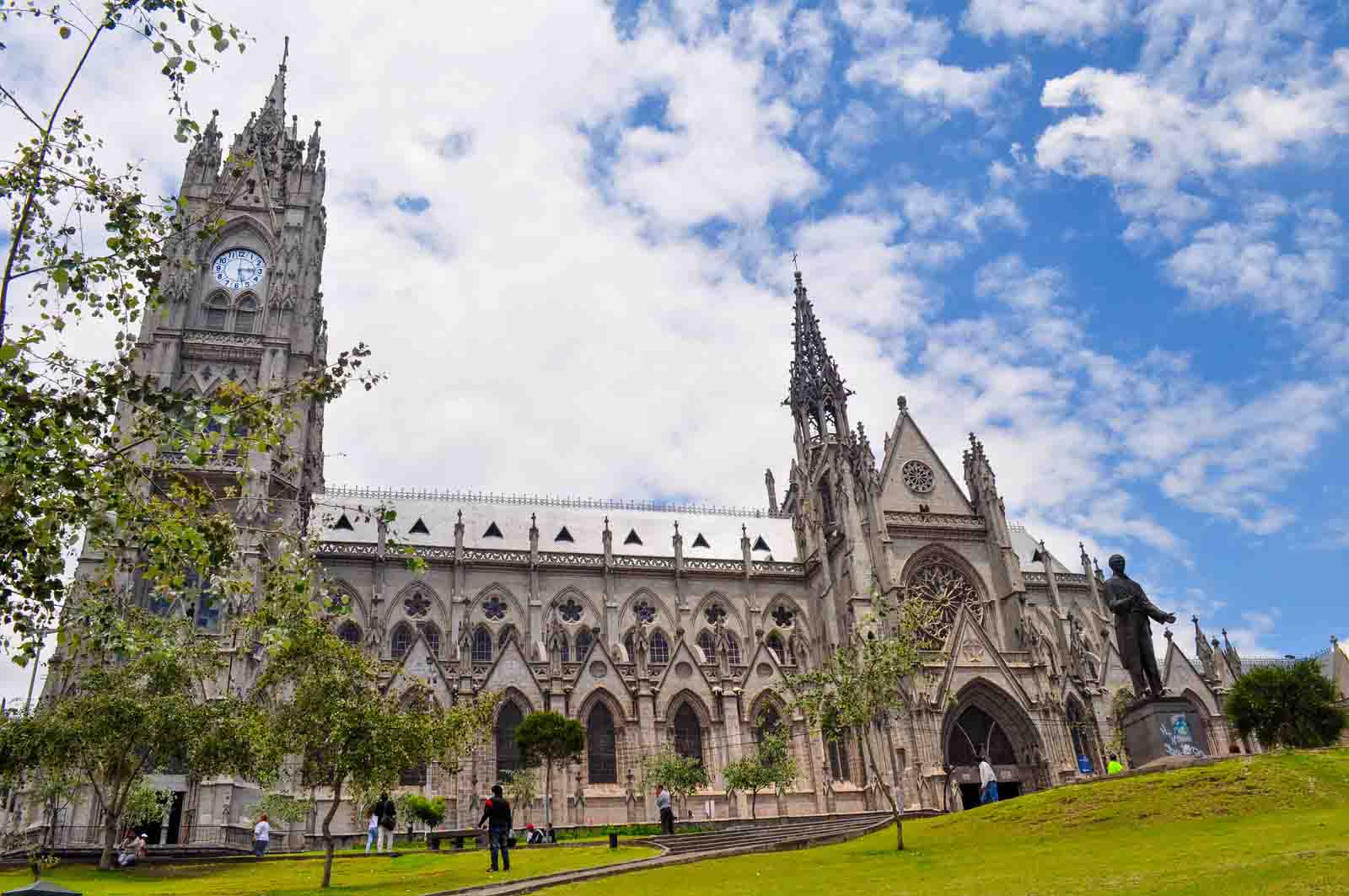
Considered the largest neo-Gothic temple in America, the basilica was designed by French architect Emilio Tarlier, who was inspired by the Parisian cathedral of Notre Dame.The construction of this architectural jewel began in 1884 and 138 years later, it is still unfinished. There is even a legend according to which "the day the Basilica is finished in its entirety, Ecuador will disappear as a free and sovereign state".
The magnificence of the Basilica is reflected in its 140 meters long by 35 meters wide and 30 meters high. The 24 votive chapels are 15 meters high and the two front towers are 115 meters high, making it an ideal place to take pictures of the city. As a curious fact, the gargoyles that are part of this construction represent the Ecuadorian fauna. During the visit you can see sculptures of caimans, turtles, boobies, armadillos, howler monkeys, pumas, among other animals.
5. The Virgin of Panecillo
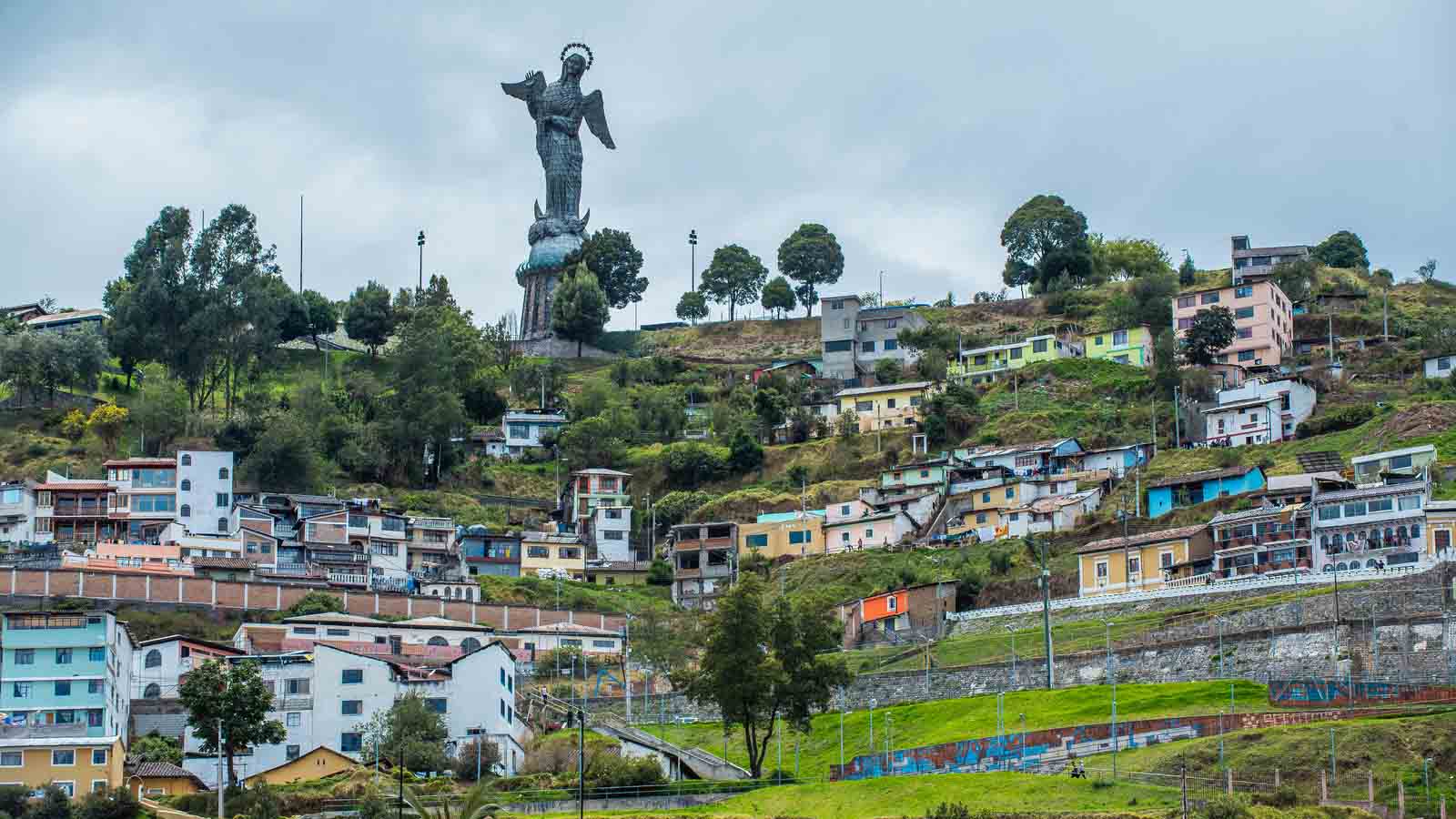
Also known as the Virgin of Quito.This monument was built in 1975 and is made of seven thousand four hundred pieces of aluminum, is 41 meters high and stands out for being the tallest statue in the world, even bigger than Christ the Redeemer of Rio de Janeiro, and for being the only winged virgin.The figure can be seen from several points of the city for being located in the emblematic hill of the bun, a small elevation nestled in the heart of Quito.In this month of tourism, we invite you to discover the magic and charm of the Capital of the Center of the World, the first Cultural Patrimony of Humanity.
Check our recommended itineraries in Ecuador:
Check Our Suggested Tours:


